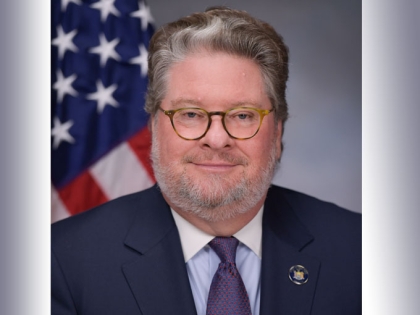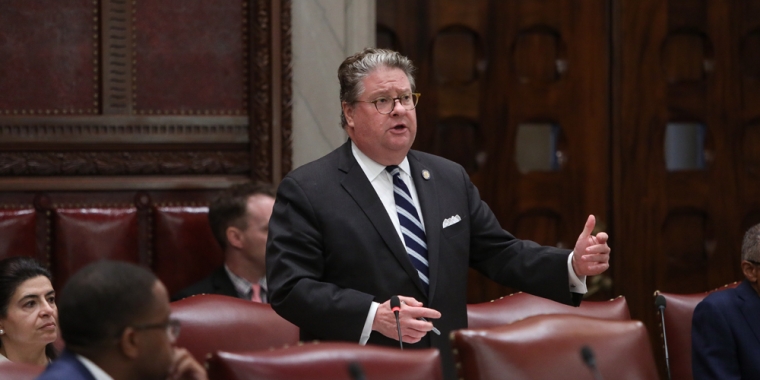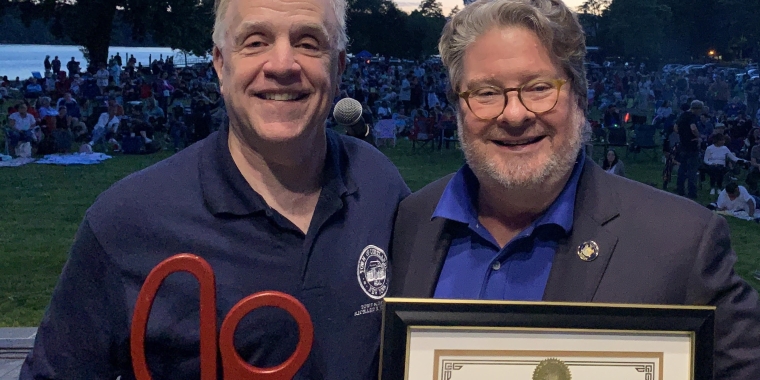
Harckham, Senate Pass Gun Safety Bill, Strengthen Equal Rights Amendment
July 1, 2022

Albany, NY – New York State Senator Pete Harckham and his colleagues in the State Senate passed two landmark bills today—one to ensure that those who carry concealed weapons meet strict safety requirements to obtain a license, which will help safeguard residents and prevent gun violence; and the other, by amending the State Constitution, to elevate the rights of millions of women and residents in regard to their ethnic, LGBTQ or disability status and / or identification.
Most importantly, the new amendment codifies the right to reproductive healthcare in the State Constitution, further building on the protections enacted in 2019 with the Reproductive Health Act.
“The recent decisions by the Supreme Court to weaken gun safety regulations for concealed carry permits and overturn a woman’s right to choose guaranteed in Roe v. Wade will imperil and put at risk millions of Americans,” said Harckham. “In New York, however, we will not be held hostage to ideologues, and instead, as seen today, will continue to protect our residents and uphold their rights in any way possible.”
In reaction to the Supreme Court’s striking down New York’s “proper cause” law to carry a concealed firearm outside the home, the first bill (S.51001) will strengthen the licensing requirements that an applicant must meet in order to obtain a firearms license for concealed carry permits. It also protects New Yorkers from gun violence by enumerating a list of sensitive locations (schools, hospitals, movie theaters) where even people with licenses for concealed carry cannot possess a firearm, and protects private property rights by requiring owners to “opt in” to allowing weapons on their property.
Additionally, it strengthens safe storage laws by increasing the age limit, so that safe storage laws apply if a minor under the age of 18 lives in the home; and by ensuring that a person cannot leave a weapon in a car outside of their possession unless the weapon is in a lockbox.
As for the licensing requirements for concealed carry, they include an interview with a licensing officer, a minimum of 16 hours of weapons safety training, contact information and character references and a list of social media accounts to confirm character and proper conduct. While felons are already disqualified from obtaining a gun license for concealed carry with current law, the new law adds other disqualifying offenses, like drunk driving and assault convictions within the previous five years.
“These are common sense gun safety regulations that any law-abiding resident will have no problem adhering to,” said Harckham.
The second bill (S.51002) acknowledges that, in striking down Roe v. Wade, the Supreme Court is apt to take aim at the hard-fought rights of women, LGBTQ individuals and others. New York’s Constitution only guarantees equal protection for racial- and religion-based discrimination.
The new amendment to the State Constitution, when enacted, will grant protections to women, LGBTQ New Yorkers, and New Yorkers of color, all while protecting the rights of people to practice their religion. It places all New Yorkers on an equal footing in the eyes of the law, but most importantly, it is a powerful statement that New York’s diversity is its strength, and that each and every New Yorker will always enjoy the equal protection of the laws of this State.
Moreover, the amendment says that discrimination based on pregnancy, pregnancy outcomes and reproductive healthcare is unconstitutional. In this way, the amendment constitutionalizes the Reproductive Health Act, which the Senate passed in 2019 to codify Roe v. Wade into New York State law, protecting it from future attack by a hostile administration. The amendment codifies, for the first time, that sex-based discrimination is unconstitutional, and so protects marriage equality.
If the State ever tries to roll back New Yorkers’ rights, this amendment will stand in the way. Any restrictions on, for example, reproductive choice or same-sex marriage, would be subject to challenge as unconstitutional discrimination.
“We are, once again, making certain that all New Yorkers are equal—and will stay equally protected by our laws,” said Harckham.
related legislation
Share this Article or Press Release
Newsroom
Go to Newsroom


